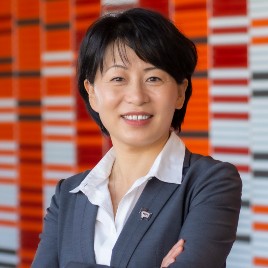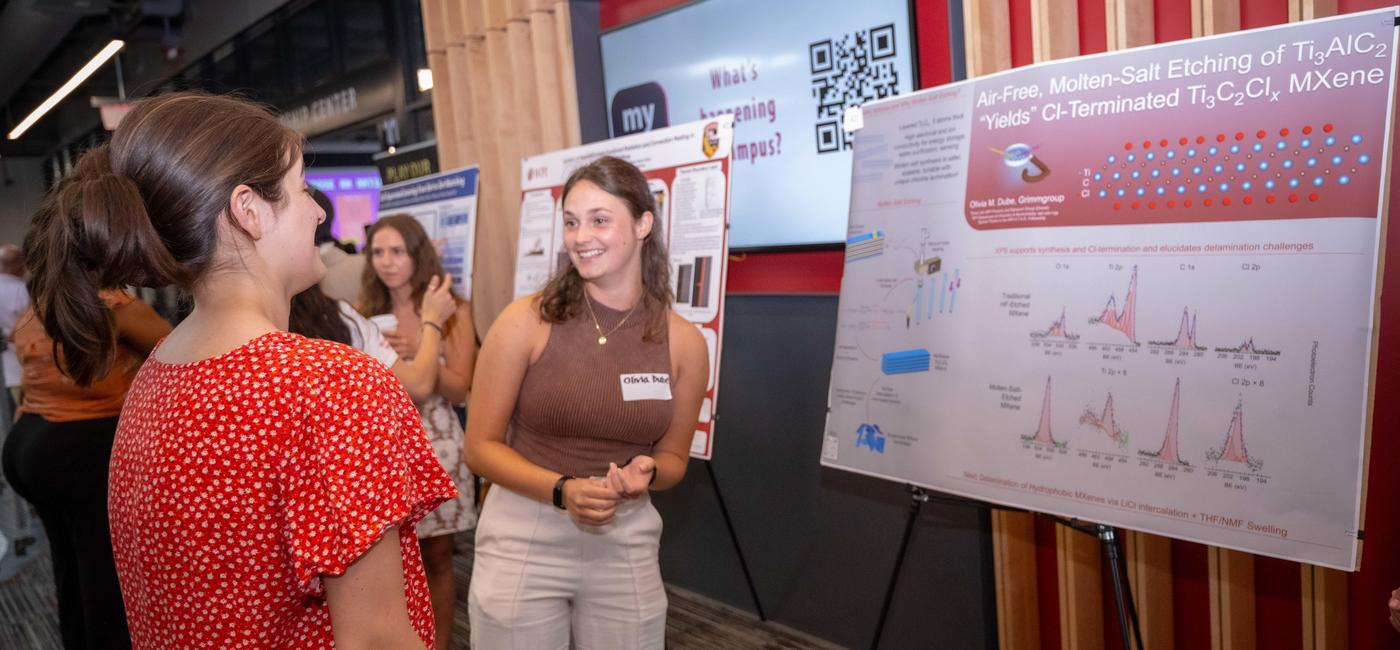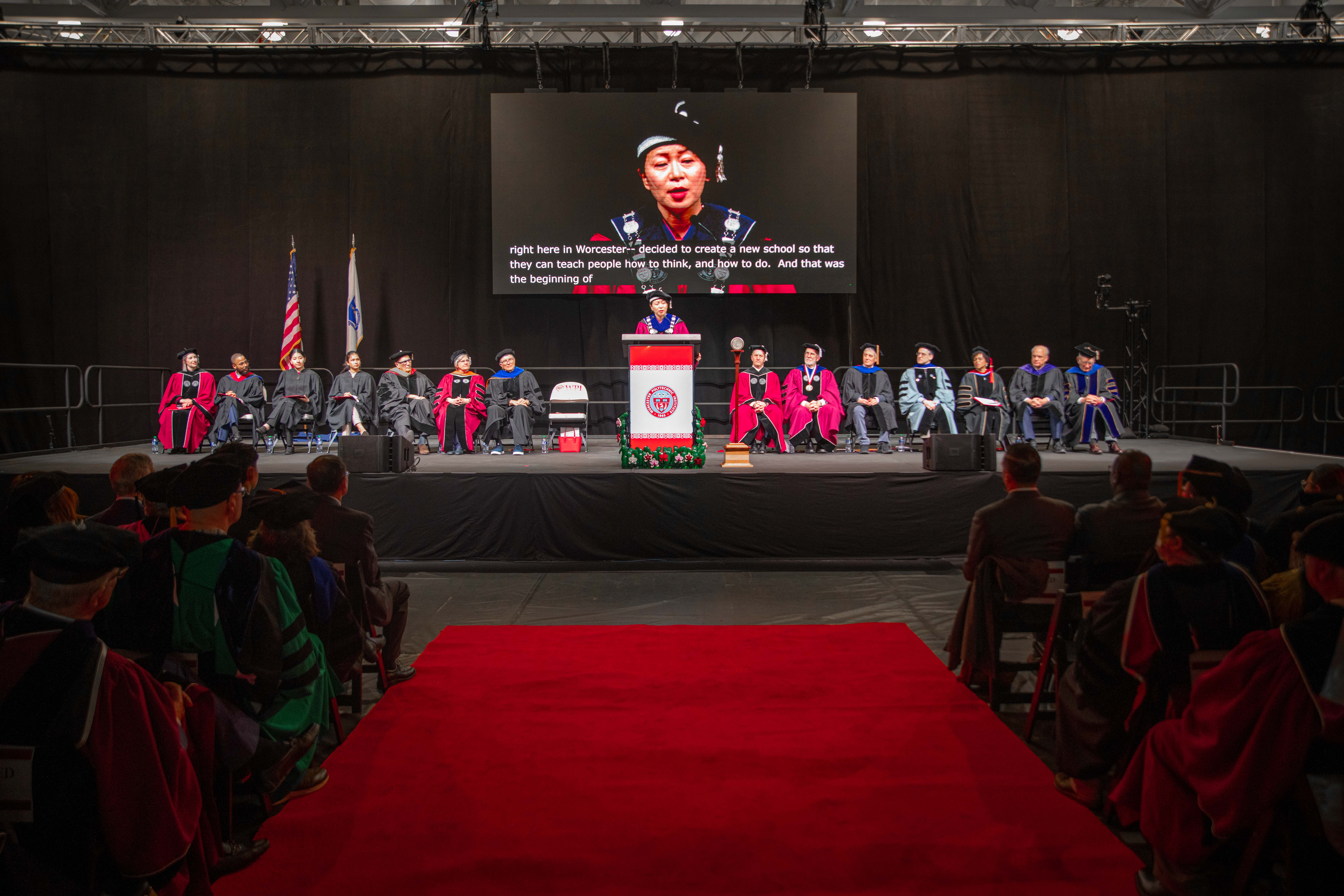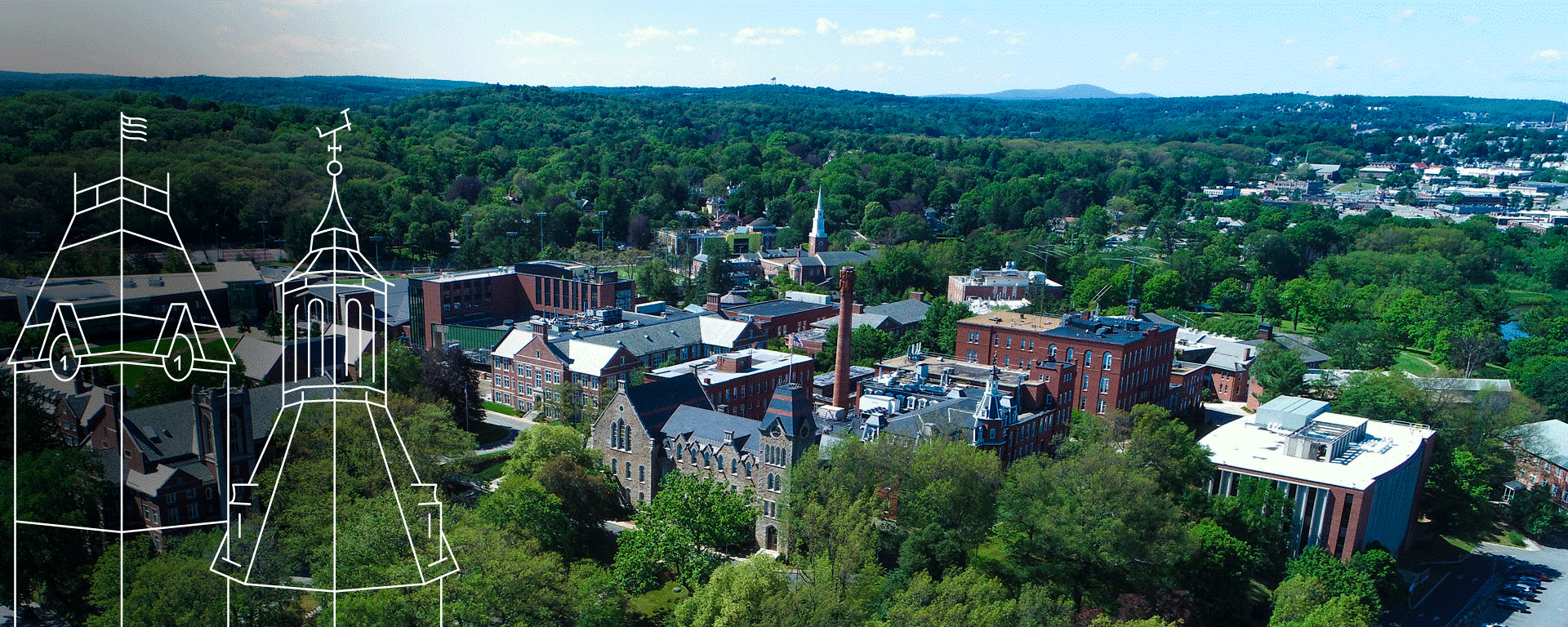Students from WPI and other colleges and universities, who spent the last 10 weeks on campus conducting research, presented their work at the Summer Research Showcase on August 3 in the Innovation Studio. The annual event, sponsored by the Office of Undergraduate Research, drew faculty, staff, guests, friends, and family, all eager to learn about the discoveries made by students developing innovative solutions to societal challenges. These students, many of whom were presenting research publicly for the first time, were advised by WPI faculty and mentored by WPI PhD students.
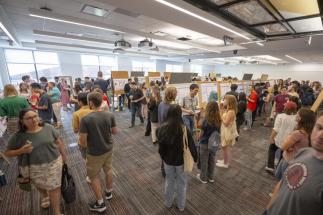
Undergraduates Share Results of Summer Research in Showcase
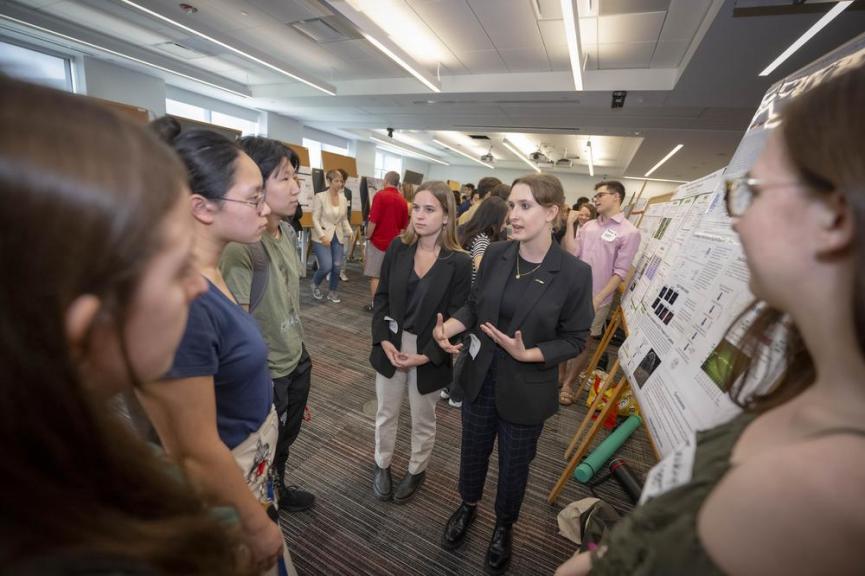
Researchers included WPI students in the Summer Training in Arts & Sciences (STAR), DraftKings, and neuroscience fellowship programs, in addition to the Early Research Experience in E-Term (EREE) program. Work was also presented by college students from around the U.S. who were part of several National Science Foundation-funded Research Experiences for Undergraduates (REU) sites at WPI.
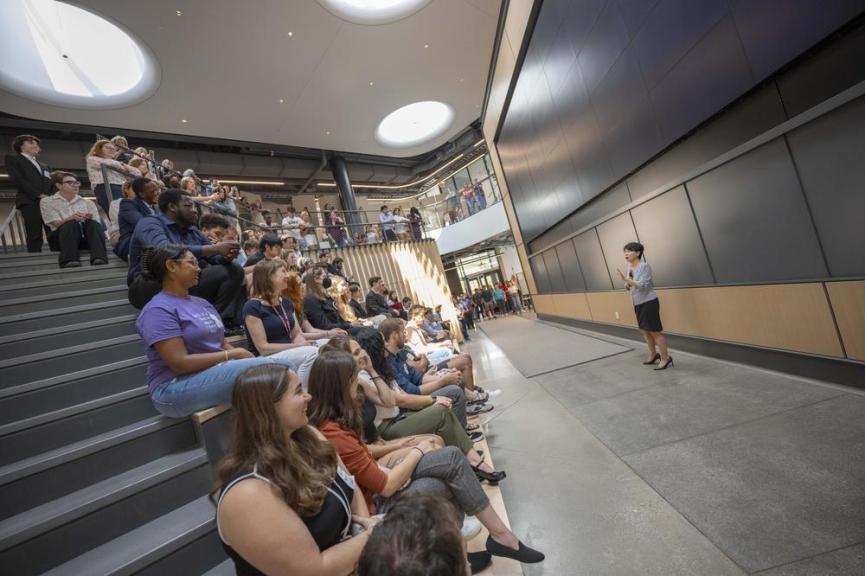
In an address to start the event, WPI President Grace Wang reflected on the importance of curiosity and research and encouraged students to “never let anything limit your imagination, and always see the world through different lenses.” She joined faculty, staff, and other guests in observing the students’ presentations.
Snapshots from the Showcase

Eva Petschek, WPI Class of 2024, explored survey data that suggest people are at higher risk for anxiety if they associate self-esteem with likes and comments on their Instagram posts. The double major in psychological science and biology & biotechnology helped plan a study that will include surveys and brain scans to see if anxiety risk can be reduced by reminding social media users of self-affirming comments they’ve written about themselves. Petschek said that with so many young people having anxiety and depression, “I want to figure out what is causing that. A lot of people say social media is causing it. I really want to explore that.”
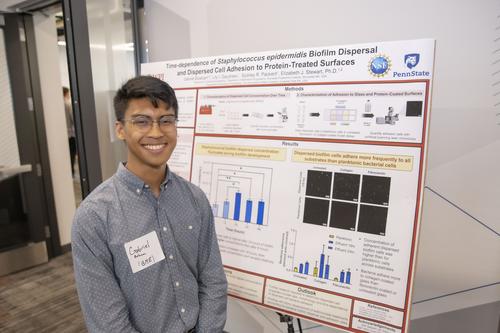
Gabriel Bulacan, Penn State Class of 2025, spent his summer working on antimicrobial adhesion to biofilms in the human body to prevent the spread of infectious diseases. Bulacan says he has always been interested in attending medical school and this summer confirmed his goals and allowed him to explore the types of medicine he could study. "Doing this research has really opened my mind.”

Salma Riad, WPI Class of 2025, developed a preliminary method to test the accuracy and reliability of a minimally invasive, image-guided, surgical robot designed to improve laser ablation procedures that deliver light and heat to areas of the brain to address cancer, seizures, and Parkinson’s Disease. “It’s nice to see that I can contribute to society,” said Riad, a biomedical engineering major. “Hopefully, this project can help reduce the cost of the procedure and make it more accessible to patients.”
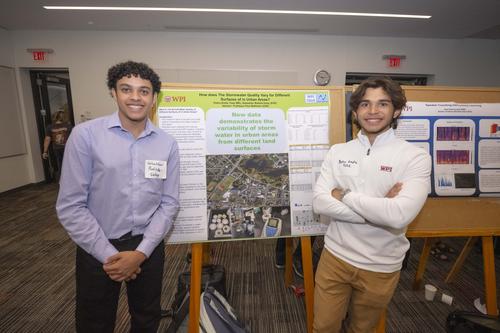
Pedro Andre Tose and Sebastian Batista-Valoy, WPI Class of 2026, did their summer research on the outskirts of campus, studying storm water runoff into nearby bodies of water including Salisbury Pond. The work is part of an ongoing project between WPI and the City of Worcester to identify the different types of pollutants affecting the region. The information collected will be included in a database to develop a plan to more effectively manage stormwater runoff. Both students said they are proud of their work, which will directly impact their new “home” city.
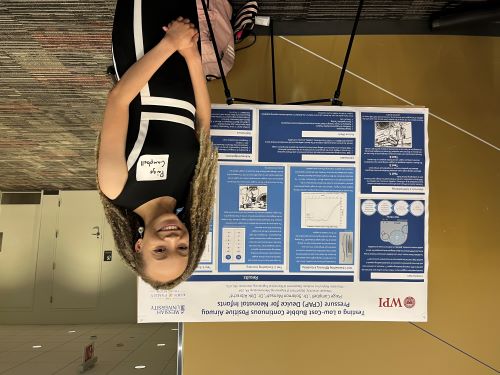
Paige Campbell, Messiah University Class of 2024, worked on developing a low-cost bubble continuous positive air pressure (CPAP) device for neonatal infants which will soon be used in clinics in Ghana. Campbell says this research has sparked her interest and passion and she hopes to work on more low-cost devices that can have a major impact in remote areas. Her biggest takeaway from this summer experience is “perfect is not a word often used with research, but perseverance is.”
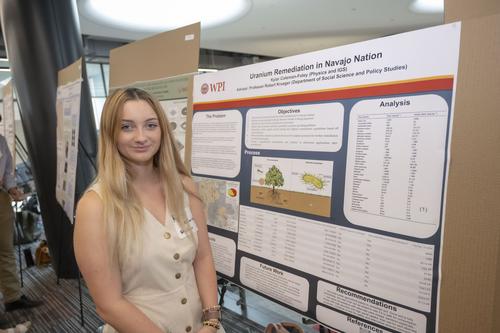
Kylar Foley, WPI Class of 2024, identified plants with the potential to remediate the chemical effects of uranium mining on soil and water in the Navajo Nation. The double major in physics and international & global studies found some of the plants could uptake large amounts of uranium through their root tissue. Foley wants to continue researching the concept’s potential as a broad solution, since, she said, “bioremediation often works in a lab, or in scientific principles. It doesn’t always work once you bring it out on a large scale.”
Offices and Departments
